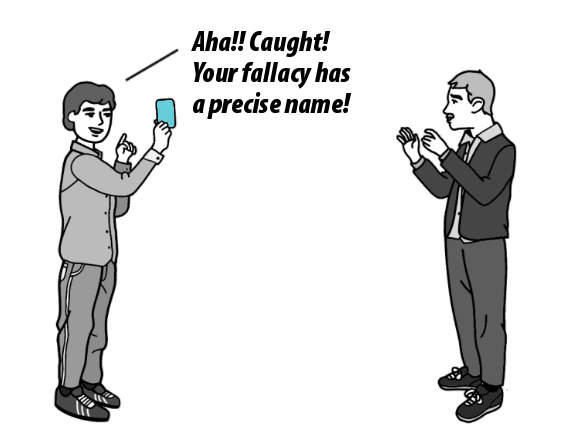Why fallacies?
Argumentative fallacies are errors that lurk in arguments and reasoning. A distracted or
unprepared listener often misses them and runs the risk of taking as valid what is actually deceptive.
 Skilled and malicious persuaders can then exploit the fallacies to prevail in a debate
over those who argue in a logical way.
But fallacies are not always voluntary: we can fall into a fallacy without realizing it,
and, when this happens, we deceive ourselves.
Skilled and malicious persuaders can then exploit the fallacies to prevail in a debate
over those who argue in a logical way.
But fallacies are not always voluntary: we can fall into a fallacy without realizing it,
and, when this happens, we deceive ourselves.
So, learning what the fallacies are is important, because it will enable us to check the correctness of our own and others' arguments and to avoid the traps of manipulators.
Unmasking deceptions will be easier and more fun when we know the names of the different
types of fallacies and, to an extent, these cards also suggest how to respond to deceptive arguments.